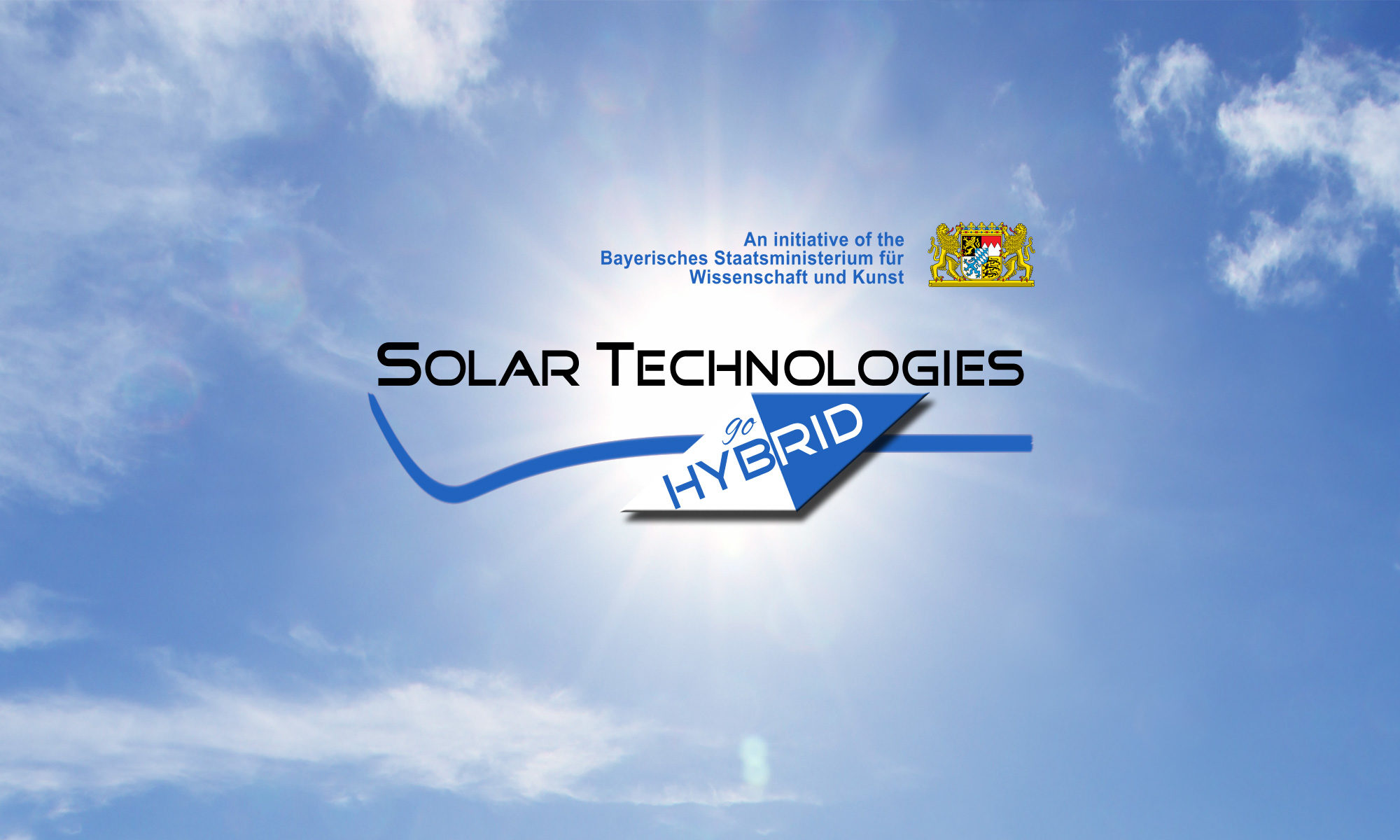The Bavarian-based research network „Solar Technologies Go Hybrid“, in short SolTech, in which five Bavarian universities are collaborating to develop novel material systems for solar energy conversion, will be funded with a total amount of 17 million Euros for an additional five years by the Free State of Bavaria. This unique consortium began its collaborative research activities in 2012 as an action within the framework of the “Energy Transition”. After a recent evaluation with a very positive outcome the SolTech network can now continue its collaborative research work to add solutions to one of the most important global challenges.
The research focus is on developing an artificial way of producing chemical fuels from solar energy via photosynthesis – analogous to the way it is done in plants. This method of storing converted solar energy constitutes an absolutely crucial part of the Energy Transition. A goal is to obtain fuels such as hydrogen and methane out of water or carbon dioxide either directly or indirectly via preceding conversion into electrical energy. In order to develop the optimal strategy, both solar cells as well as photo- and electrochemical processes using specifically tailored composite materials will be investigated. Therein lies the strength of the network: the key labs of SolTech are international leaders for specific material types such as functional polymers (Univ. of Bayreuth), inorganic materials and nanosystems (the two Munich universities, LMU and TUM), supramolecular systems (Univ. of Würzburg) as well as materials based on the element carbon (Univ. of Erlangen). These materials must be coupled together intelligently on very different spatial scales in order for them to achieve their desired functionality, in turn enabling the consortium to attain the goals set within this collaboration.
The activities, synergies, and results stemming from SolTech have garnered significant international attention. The organization of SolTech-conferences at varying key labs with experts from all over the world, has played a decisive part in enhancing the worldwide visibility of Soltech. An intensive exchange of scientific and technological ideas as well as young students between the key labs has not only led to amazing advances toward realizing the aforementioned research visions, but also to producing a generation of highly educated and thus much sought-after graduates for the Bavarian job market.
